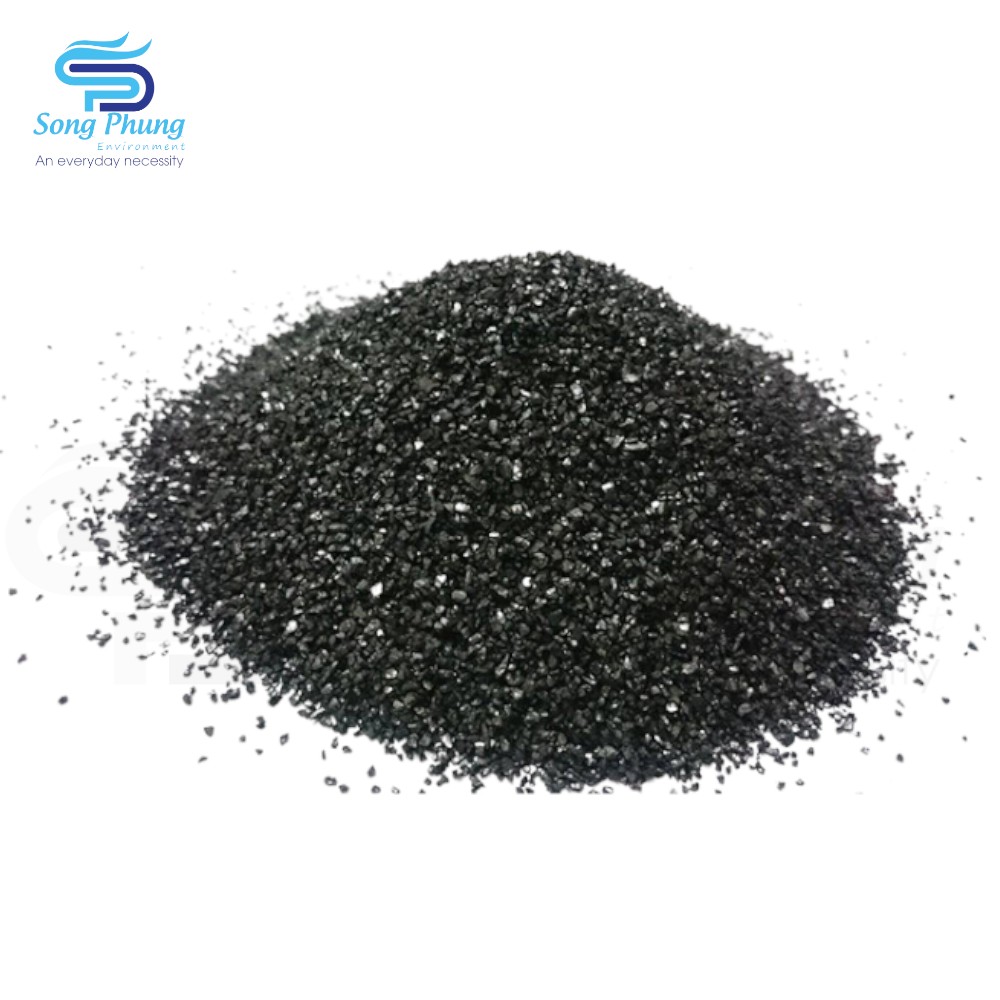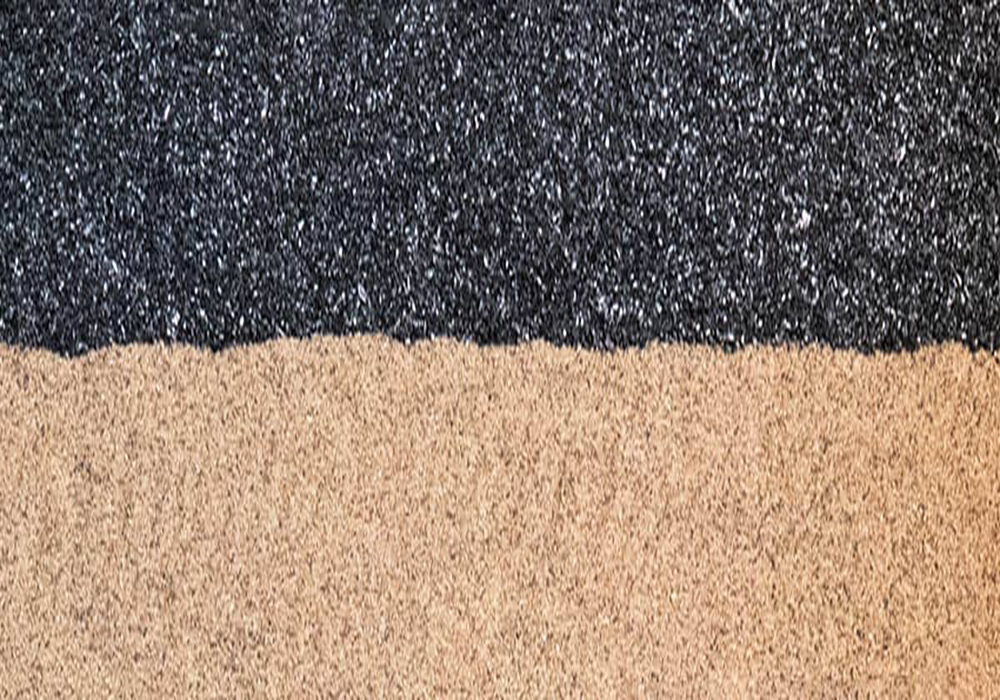Anthracite media is a filtration medium mainly used for water filtration and wastewater treatment. It has benefits such as higher service flow rates, longer filter runs, reduced backwash rates, reduced head loss compared to single media filter beds and generally extends the life of the filter beds.

What is Anthracite?
Anthracite is a type of coal, and is the coal with the highest carbon content, in excess of 95% by weight. Like most minerals, anthracite is formed over millions of years of deposited plant layers, combined with pressure and temperature.
Of all the carbon materials, this black and rather shiny mineral is the hardest of them all. Long used in water filtration applications, the anthracite used for water filtration is usually specially selected from deeper mines, where, due to higher pressures, the carbon content is typically even greater.
Why Anthracite Is Used as Water Filter Medium?
In simple terms, filter media are materials that facilitate the passing of raw untreated water through them, while retaining any impure particle matter, allowing now cleaner water to pass through. Each filter medium has specific characteristics such as size, weight, whether they are activated or non activated, gravity and more. All of these characteristics give rise to differing operational performance at certain filtration tasks – oftentimes a compromise between them is sought to provide the most robust system, or a system at a lower price point. Anthracite’s broad tolerance of contaminants and ease of forming it into a filtration grade product make it a popular choice.
For drinking water, wastewater filtration and water for industrial use, anthracite has ideal properties for purifying and clarifying this type of water – especially when utilised in combination with other sand filters, or as a component of a dual- or multi-media filtration system.
Because of its ideal properties, relative ubiquity and ease of use, anthracite as a water filter medium is one of the most widely used around the world.

Benefits of Anthracite Water Filter Media
Here’s a quick rundown of the benefits of using Anthracite as a Water Filter Media:
● The shape of particles allows suspended particles to be retained over the depth of the filter bed
● It complements mixed filters very well, particularly Green and Manganese Sand filter media
● Allows for higher flow rate compared to sand
● Smaller pressure drop compared to sand
● Faster backwash rate compared to sand
● High resistance to a variety of chemicals
● Greater physical strength for use in industrial water purification.
● Prevents filtration blockage and more.
● Prevention of mad ball forming at the surface of the sand layer.
● Can easily transform from Single Media Filtration to Dual Media Filtration (sand)
Physical Properties of Anthracite
| Colour | Black |
| Dry Bulk Density | 800kg/m3 |
| Specific Gravity | 1.6+ .05 g/cm3 |
| Effective Size | 1.2 – 2.4mm |
| Uniformity Coefficient | 1.5 – 1.7 |
| Bondwork Index | 20 – 22 BBW (KwH/mt) |
What Exactly Is Multilayer Filtration?
Multilayer simply means there are a variety of layers in deep beds that provide filtration at different levels. In contrast to methods like cartridge filtration, multi-layer filtration – which includes gravel in various sizes and forms as well as anthracite – represents a deep-bed filtration. Multilayer, also known as dual- or multi-media filtration, and is by far the most robust and effective filtration set up.
With multi-layer filtration, the water passes through various layers of filter material with increasing fineness in the direction of filtration. Gravel filtration or multilayer filtration, in combination with flocculation, is particularly effective in the treatment of river water. When this process is followed, it usually also involves a process stage of sedimentation. Gravel and multi-layer filters are regularly cleaned by back-flushing.
Why Anthracite Media Is Good at Multilayer Water Filtration
Anthracite’s strength and durability has already been mentioned, and how its particle shapes lend themselves well for deep bed filtrations. With multi-layer filtration, any water requiring purification passes through a number and variety of layers of filter material, with increasing fineness of media along the direction of filtration. Having multiple layers allows the extraction of a variety of particle sizes and types passing through the layers. Thereby ensuring a purer outcome at the end of the process. Multilayer filters can cover a large number of solids to be extracted.
Why Is Gravel Used Alongside Anthracite?
In multi layer sand filters, the Anthracite is usually deployed on the top, above a number of sand layers that are designed to filter out finer particles from the water. Gravel normally forms part of the base layer and facilitates the purified water passing through to outlets. If sand were the base layer, these outlets would probably be clogged. Gravel helps prevent clogging from occurring.
Summary
- Anthracite is a highly pure form of coal, is known for its harness, ubiquity and is a good source of carbon
- In filtration media, anthracite is used often times alongside sand or gravel for simple water purification
- For reverse osmosis, anthracite is used alongside other filter media to ensure highly efficient operation at the osmosis membrane, for water desalination applications
- In solvent extraction electrowinning, anthracite filters (often alongside garnet) are used in several stages of the process to remove residual organic and insoluble materials so as to increase extraction and electrolysis efficiencies
Xem thêm: Quotation for water production system to produce pure water bottles of 20L
To determine the exact water treatment technology that suits your needs, please contact our company for further advice.
Contact hotline: 0913.90.72.74 to order in bulk, the most preferential price!
Follow Fanpage: https://www.facebook.com/SongPhungthietbinganhnuoc/ to update new products.
Translator: Duong Nguyen Hoang Khang


